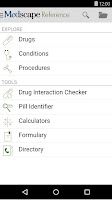Drug Interaction and its side effects - Is your doctor factoring drug interaction while prescribing?
In the US, 3 to 7% of all hospitalizations are due to Adverse Drug Reactions (ADR). ADRs occur during 10 to 20% of hospitalizations; about 10 to 20% of these ADRs are severe.
 If countries like USA which has a stringent food and drug administration get millions of patients who suffer adverse drug reaction then the scale of adverse drug reaction in a populous country like India, where controls are lax and reporting tardy. This would be a similar story in other developing and under-developed nations.
If countries like USA which has a stringent food and drug administration get millions of patients who suffer adverse drug reaction then the scale of adverse drug reaction in a populous country like India, where controls are lax and reporting tardy. This would be a similar story in other developing and under-developed nations.
The most common categories of drugs withdrawn in the last decade ( Developed Countries) were non-steroidal anti-inflammatory drugs (28%), anti-diabetics (14.28%), anti-obesity (14.28%), antihistamines (14.28%), gastroprokinetic drugs (7.14%), breast cancer and infertility drugs (7.14%), irritable bowel syndrome and constipation drugs (7.14%) and antibiotics (7.14%).
And it takes 3-5 years for a drug to be banned in India after it has been banned in other countries. India has to rely on data provided by developed countries to ban drugs or combination of drugs responsible for ADR. It is only recently that the government has in a major initiative recently swung into action and banned 344 fixed drug combination that are known to cause ADR.
 Just consider Diabetes, 14.28% of anti-diabetics drug is said to cause ADR and is now withdrawn and the banned. As it takes 3-5 years in India to follow suit, one can imagine the adverse reaction on the 70 million diabetics in India who get the benefit of this information few years later. One can imagine the harm caused by the most abused anti-inflammatory drugs, antihistamines and antibiotics.
Just consider Diabetes, 14.28% of anti-diabetics drug is said to cause ADR and is now withdrawn and the banned. As it takes 3-5 years in India to follow suit, one can imagine the adverse reaction on the 70 million diabetics in India who get the benefit of this information few years later. One can imagine the harm caused by the most abused anti-inflammatory drugs, antihistamines and antibiotics.
Pharmacovigilance Programme of India, a government watchdog has put in place ADR (Adverse Drug Reaction) reporting mechanism but there seems to be little or no-support coming in terms of data that will help raise alarm bells that alerts prescribers and the largely illiterate or unobserving consumers.
Some of the main reasons for lack of ADR data especially in the area where multiple drugs are taken for different ailments are:
- The rise of super-speciality doctors. A physician prescribes for diabetes and blood pressure, while in the meantime the patient take a drug prescribed by a gastroenterologist for irritable bowel syndrome and then by rheumatologist for his arthritis (in India patient often goes to the orthopedic for arthritis thinking it’s a bone issue). I suspect very few physicians take an inventory of the prescription menu of the patient accumulated from different doctors. The resulting cocktail results in serious complications and the patient reports with new symptoms that is failed to be co-related to the prescription.
- The average time spent by doctors in India is extremely less. A report suggests that in developing countries a doctor spends less than 60 seconds in prescribing medicines and explaining how the medicines are to be taken. This also implies that the doctors find little time to detect adverse reaction or are not trained to detect adverse reaction. They also lack the motivation to report since they are not accountable for it.
- Untrained nurses fail to observe and understand and report adverse reaction to their superiors.
- Prescription of allopathic medicines by doctors from other system of medicines who lack appreciation of ADR on their patients.
- Medical stores are run as a family business with the mandatory qualified pharmacists presence being only on the rooster. The staff at the medical stores being largely ill-trained and unequipped to advise how a particular drug is to be taken and its potential side-effects.
Possible Solutions:
Apart from the damage caused to the patient, ADR also adds to the financial burden of the family, on the government health care and on the Insurance companies. Hence, the administration needs to implement and ensure a robust compliance in reporting of ADR. The whole health care ecosystem needs to be wired to ensure safe prescription.
- Doctors need to be conscientized to detect and report ADR.
- Doctors should maintain digital record patient history and prescription that should be forwarded when referring to other specialities.
- A dedicated ADR department in hospitals that scans prescription and flags potentially risky combination of prescription. (Second-level check)
- Empower patients with knowledge of the scope of action and reaction of the medication or line of treatment prescribed by provided easy access of information through websites and Apps that list out the side-effects of a prescribed drugs installed as kiosk at hospitals, clinic and pharmacies.
- Trained nurses in clinics and hospitals and trained dispensing pharmacist who can counsel and guide patients.
- Health-care workers be trained to recognize potential ADR in their jurisdiction and report to the authorities.
Resources:
On-line Drug Interaction Checker Links
|
Watch above video - enlightening talk on drug interaction and the value of data analysis.
Reference:


Comments
Post a Comment